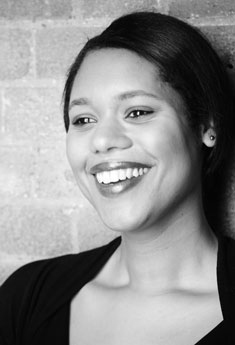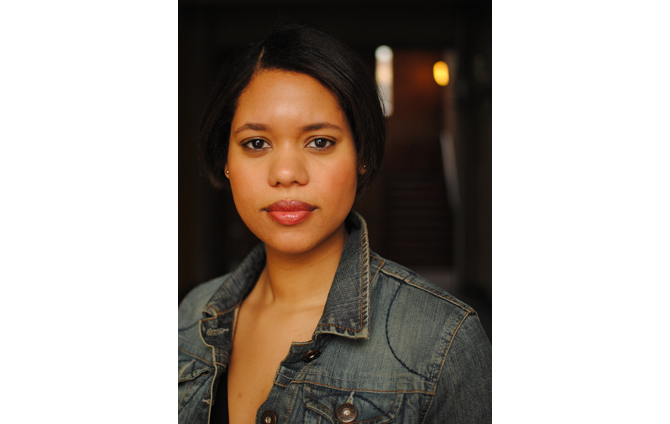Congratulations to Arts Management graduate and composer Hannah Kendall, who has been awarded the Women of the Future Award 2015 for Arts & Culture. These awards, celebrating their 10th anniversary year, support and highlight female talent within the UK.
Hannah chatted to us about what she’s been up to since graduating, and how her Arts Management training is helping her to achieve that all-important ‘Portfolio Career’:
What drew you to the Arts Management course at RWCMD?
I knew that the Arts Management course would be an invaluable grounding to a career in the Arts. I liked that it offered compressive training in all areas from finance and fundraising to event planning, marketing, and education and outreach.
If I’m honest, at first I thought it was a very sensible step to take before embarking on my Masters in Advanced Composition, just in case the whole composing thing didn’t work out! However, as my career continues, the more I realise that it was more than just a very rational move, but integral to its overall progression, both as a composer and an arts manager.
How has your arts management qualification influenced decisions in your career as a composer?
I think it’s vital for all musicians to be entrepreneurial. There’s no guarantee that you’ll be looked after by an artist manager, or have your music published by a major publishing house.
In any case, I’m not convinced that these should be main aims for 21st-century music creators. This means that self-promotion and self-management skills are just as vital as your artistic ones. I definitely picked-up this concept from the arts management qualification.
The media training at the College, in print and broadcast in particular, has been really useful for when I’ve had to write articles and do radio interviews, such as when I was featured on BBC Radio 3’s ‘Composer of the Week’ programme in March.
That can be really nerve-wracking, but I still utilise the presentation skills we were taught all those years ago to give me the confidence to communicate effectively.
What is it like combining a composition career with your work as an arts manager? How do you strike the balance?
It’s busy, but also very exciting and no two days are the same. You have to be very disciplined, yet flexible too. I spend three days a week working as one of the directors at the charity London Music Masters, which aims to enable opportunity, diversity and excellence in classical music.
The rest of the time I spend composing or teaching at Junior Royal Academy of Music. All areas feed each other so I don’t really think of them as separate entities. For example, part of my work at LMM is to commission composers to write new works for the students on our music education initiative and professional artists. The contemporary classical music world is one I obviously know a lot about as a musician, and so my knowledge of this area really helps with the commissioning process at work.
The most difficult thing is how others see you, as either a ‘composer’ or ‘arts manager’, rather than both. Also, my work at LMM is often referred to as ‘the day job’, even though my other work is just as important to me. When I first went to RWCMD 10 years ago, Aidan Plender, who was the course leader, always spoke about the notion of the Portfolio Career, and it’s something that I’ve really carried forward. I think it’s essential, especially for musicians. However, it still seems to be a new or unusual idea to some.

You’ve said that writing and producing your recent opera, ‘The Knife of Dawn’, is a perfect example of how you combine your experience in both arts management and composition. Tell us more about that.
I’ve been wanting to write a chamber opera, specifically creating a role for a singer of African-Caribbean descent, for quite some time. As well as writing the music, I’ve also been looking after all the other elements integral to the project, including fund-raising, a skill that I learned during my training at RWCMD and have developed throughout my career since.
Do you have any advice for any aspiring composers or anyone considering a career in the arts more generally?
Anyone working in or pursuing a career in the arts is passionate about their field, and I think it’s important to always try and find work that maintains this passion, because working in this area isn’t always easy. These projects won’t always find you. Most likely, you’ll have to seek them out or create opportunities for yourself. Don’t shy away from it!
I urge everybody to approach their profession in this way, because more often than not the results are exciting, dynamic and and incredibly rewarding.
Hannah’s work, ‘Not Hands Like Mine’, taken from her opera, ‘The Knife of Dawn’, is being premiered in the College’s Dora Stoutzker Hall on Friday November 27th.
All photos credit: Chris Alexander

Share on Twitter
Share on Facebook